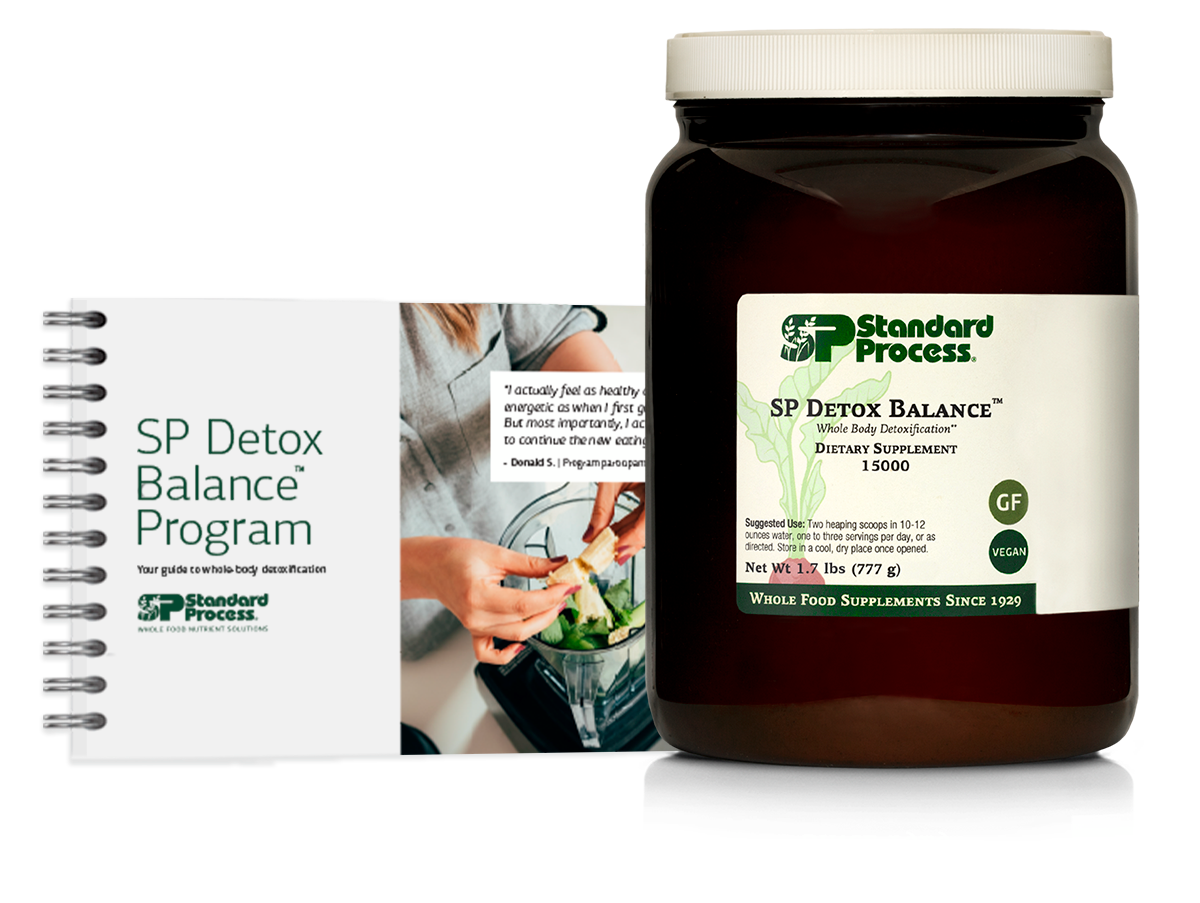Thyroid Health with Standard Process
Good Thyroid Hormone Balance and Maintaining Healthy Metabolism


The thyroid gland, a butterfly-shaped powerhouse located in your neck, plays a critical role in regulating your metabolism, energy levels, and overall well-being. Just like any orchestra, your thyroid needs a harmonious blend of nutrients to function optimally.
The thyroid also works in concert with the Hypothalamus, Pituitary, Adrenal glands and the Liver to produce a balance of thyroid hormones.

The HPTL Axis
The thyroid endocrine axis is a crucial system that regulates metabolism in the body.
It begins in the hypothalamus, a gland in the brain, which produces a hormone called thyrotropin-releasing hormone (TRH). TRH signals the pituitary gland, also in the brain, to release thyroid-stimulating hormone (TSH) into the bloodstream.
TSH then travels to the thyroid gland, located in the neck, where it prompts the release of two main hormones: thyroxine (T4) and triiodothyronine (T3). These hormones play key roles in controlling metabolism, energy production, and growth throughout the body.
Most of the hormone produced by the thyroid is T4, which is relatively inactive. However, T4 can be converted into the more active form, T3, primarily in the liver and other tissues.
T3 is the form of thyroid hormone that exerts the most significant metabolic effects on cells throughout the body.
In summary, the thyroid endocrine axis involves a series of interactions between the hypothalamus, pituitary gland, thyroid gland, adrenals and other tissues. Its function is to regulate the production and release of thyroid hormones, which are essential for maintaining proper metabolic function and overall health.

Symptoms of Thyroid Imbalance
Thyroid hormone imbalances stem from irregularities in the thyroid gland, a vital regulator of metabolic processes located in the neck. The primary disorders associated with thyroid function are hypothyroidism and hyperthyroidism. Hypothyroidism arises when the thyroid gland produces insufficient thyroid hormone. Common symptoms include persistent fatigue, unexplained weight gain, constipation, dry skin, hair loss, sensitivity to cold temperatures, muscle weakness, and depression. Hashimoto's thyroiditis, iodine deficiency, thyroid surgery, and radiation therapy are frequent causes of hypothyroidism.
Conversely, hyperthyroidism results from an excess of thyroid hormone production. Symptoms often manifest as unexplained weight loss, rapid heartbeat, palpitations, anxiety, irritability, tremors, heat intolerance, excessive sweating, and changes in appetite. Thyroid imbalances significantly affect various bodily systems, leading to profound metabolic disturbances.

Embracing Vitamins C and A for Vascular Health
Your thyroid gland, a butterfly-shaped powerhouse located in your neck, plays a critical role in regulating your metabolism, energy levels, and overall well-being. Just like any orchestra, your thyroid needs a harmonious blend of nutrients to function optimally.
Iodine: This mineral is a key component of both T4 and T3 hormones. Deficiency can lead to goiter, an enlargement of the thyroid gland [2]. Seaweed and kelp are excellent sources of iodine. Organically Bound Minerals and Cataplex F tablets contain iodine.
Selenium: This antioxidant mineral helps protect thyroid cells from damage and supports T3 hormone activation [3].Brazil nuts are a delicious and concentrated source of selenium.
Tyrosine: This amino acid serves as the building block for both T4 and T3 hormones. Meat, poultry, and fish are good sources of tyrosine. Cataplex E is selenium containing formula.
Zinc: This mineral is involved in many thyroid functions, including T4 conversion and hormone receptor activity [4]. Oysters, pumpkin seeds, and chickpeas are rich in zinc. Be sure to conduct a Zinc Taste Test to assess your levels of zinc.
Iron: This crucial mineral is essential for producing thyroid peroxidase, an enzyme that helps convert T4 (inactive thyroid hormone) into T3 (active thyroid hormone). Ferrofood is a food based formula that provides iron.

Ordering Labs
When uncovering thyroid hormone imbalance, it is critical to order all markers related to the thyroid.
TSH
Total T4
Free T4
Total T3
Free T3
reverse T3
T3 Uptake
TPO Antibodies
TA Antitbodies
Iron Panel (Iron, Ferritin, Transferrin)
IMPORTANT: Incomplete testing leads to more guessing.
If your clinician is only ordering TSH, which is a pituitary hormone, we recommend you order a Functional Blood Wellness Panel HERE

Thyroid Complex: Ashwaghanda, Bacopa and Bladderwrack in one tablet!
Thyroid Complex, a product from MediHerb, is formulated with a powerful blend of Ashwaghanda, Bacopa, and Bladderwrack. This unique combination offers multi-action thyroid support, drawing from the rich traditions of Ayurvedic herbal preparations. The herbs in Thyroid Complex have been traditionally used to support normal thyroid function.

Foods for the Thyroid
1. Seaweed/Kelp: Packed with iodine, essential for thyroid hormone production.
2. Brazil Nuts: Rich in selenium, an antioxidant that protects thyroid cells.
3. Eggs: Excellent source of iodine, selenium, and tyrosine, all crucial for thyroid health.
4. Fatty Fish & Flaxseeds: Abundant in omega-3 fatty acids, which can reduce inflammation and improve thyroid function.
5. Liver: A powerhouse of nutrients, including iron, selenium, and vitamin A, all beneficial for the thyroid.
Conclusion: Embrace Thyroid Hormone Balance
Nurturing our thyroid, liver and adrenal health is akin to cultivating lasting metabolic balance.
As we embrace these insights, we're not just choosing foods and supplements; we're choosing a lifestyle that cherishes and safeguards our thyorid, the very essence of metabolism and hormonal balance.
Disclaimer: This article is designed to inspire and inform you about thyroid health and wellness. While we strive to provide valuable insights and suggestions, please remember that this information serves as an educational resource and not a replacement for professional medical advice. We strongly encourage you to consult with healthcare professionals, especially qualified cardiovascular specialists, for personalized advice and treatments. These specialists are equipped with the expertise and experience necessary to guide you on your journey to optimal heart health. They can provide tailored recommendations, considering your unique health profile and needs. Remember, incorporating professional medical guidance along with the knowledge gained from this article can empower you to make informed decisions about your heart health and overall well-being. Let's embrace a proactive approach to heart health, guided by expert advice and enriched by our shared insights.

Helpful Links and References
1. Brent GA. Mechanisms of thyroid hormone action. J Clin Invest. 2012;122(9):3035-3043. doi:10.1172/JCI60047
2. Garber JR, Cobin RH, Gharib H, et al. Clinical practice guidelines for hypothyroidism in adults: cosponsored by the American Association of Clinical Endocrinologists and the American Thyroid Association. Thyroid. 2012;22(12):1200-1235. doi:10.1089/thy.2012.0205
3. Ross DS, Burch HB, Cooper DS, et al. 2016 American Thyroid Association Guidelines for Diagnosis and Management of Hyperthyroidism and Other Causes of Thyrotoxicosis. Thyroid. 2016;26(10):1343-1421. doi:10.1089/thy.2016.0229
4. Chaker L, Bianco AC, Jonklaas J, Peeters RP. Hypothyroidism. Lancet. 2017;390(10101):1550-1562. doi:10.1016/S0140-6736(17)30703-1
5. Brent GA. Clinical practice. Graves' disease. N Engl J Med. 2008;358(24):2594-2605. doi:10.1056/NEJMcp0801880





